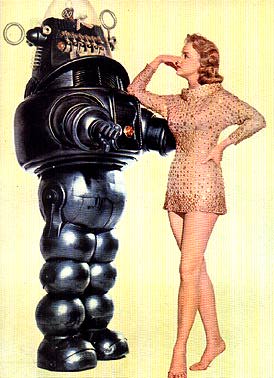
In a recent issue of
The Journal of Medical Ethics, Aubrey de Grey puts the case for science to find a "cure" for aging, giving human beings a kind of immortality. As it happens, I am not entirely convinced, though I do think there is an irrestible argument for research that could enable us to live far longer and healthier lives (but
that, of course, is a much less radical claim). On this occasion, I want to put de Grey's argument "out there" in something like the form that he has chosen. My own reconstructions, criticisms, or alternative approach can wait for another time.
De Grey's starting point is that there is now a real prospect that biomedical science can develop technologies capable of stopping, and even reversing, the process of aging, and that our hesitation to fund and carry out the required research is already delaying this. I think that these claims are plausible enough to be accepted, at least for the sake of argument. Depending on what timeframe we are talking about, the development of such a technology seems possible in principle, even if, as I believe, there are some
very difficult practical and ethical barriers to overcome. It is also quite plausible, I think, that we could now take action to hasten the quest for a "cure" (though whether anyone currently alive would benefit is another matter). It seems to follow that at least some present or future people could have their lives extended - beyond what would otherwise be their duration - if action were taken now to fund and conduct radical anti-aging research.
De Grey refers to a number of social tendencies to support his understanding of our contemporary moral convictions. One such tendency is the abolition of capital punishment in Western European countries, which includes an unwillingness to extradite prisoners who might be executed in countries where it is still practised. Another is the contemporary reticence of Western European nations about going to war: they have not been at war with each other since 1945. Such tendencies suggest an increasingly greater solicitude towards human life, and an unwillingness to deny others a choice to live, even in the extreme circumstance that the other has committed an outrageous crime.
Thus, so the argument goes, we share a central moral conviction about the impermissibity of shortening a human life against the individual's will. With a few caveats that are probably not relevant - we are not discussing the lives of embryos, for example - this all seems plausible.
Furthermore, whatever values count against such a conviction are trumped by it. We are committed to the overriding idea that there is what de Grey calls "the right of a healthy human being to carry on living."
From this starting point, de Grey argues that we ought to do what is required to discover a cure (I'll henceforth drop the scare quotes) for aging.
It is not intellectually tenable, he argues, to make a moral distinction between killing and failing to save life, such that the latter is merely optional. Nor can we distinguish between saving and extending a life in a way that makes
extending human lives merely optional. Imagine someone had rescued Jeanne Calment, who eventually lived to be 122, from drowning when she was only eighty-five. Even though she had already lived beyond any measure of a "normal" life expectancy, this action would have counted as saving her life. We have no concept of a limited tenure for a human life, something that it is impermissible to
foreshorten but okay
not to extend. A human life is not like a fixed-term employment contract (though I'm not sure whether de Grey would approve of this particular contrast to illustrate his point).
To sum up the argument, de Grey believes that it is already possible in principle to "cure" ageing, and that to hold back from doing so is to fail to save some lives that
could have been saved if we'd acted otherwise. Saving lives is as important, morally, as resisting impulses to kill. Thus, we are in a position where failing to fund and conduct research on a cure for aging is morally comparable to killing, or so it will inevitably seem to us once we understand the situation clearly, and provided that we hold to our central moral convictions.
It appears to follow that, if we are rational, we must accept that there is a moral imperative to quest for a cure for aging. Such an imperative coheres with central moral ideas so powerful as to override any imaginable countervailing considerations. To deny this imperative would involve a logical rupture within the structure of our morality.
Is all this persuasive? I've already stated that I'm not entirely convinced, but my misgivings are based on a moral theory which may be as controversial as de Grey's position, though for quite different reasons. At the least, it seems as if de Grey has put a powerful argument. I can't see any easy ways to avoid its conclusion.
 At Conjure a couple of weeks ago, Jenny and I found ourselves in the unusual situation (for us) of being on a panel together - in this case, we were two members of a suitably high-powered panel on what real scientists can learn from their science fictional counterparts.
At Conjure a couple of weeks ago, Jenny and I found ourselves in the unusual situation (for us) of being on a panel together - in this case, we were two members of a suitably high-powered panel on what real scientists can learn from their science fictional counterparts.













